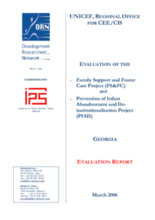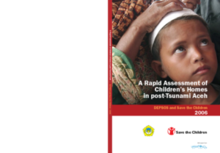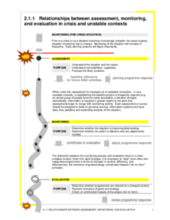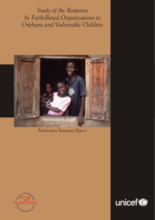Displaying 451 - 460 of 550
Practical and professional paperwork for residential care including registration and assessment forms, application for renewal of licences, referral forms, and emergency admission forms. Can be modified for different country contexts.
Assessment of two recently reformed child protection projects in Georgia (Prevention of Infant Abandonment and De-institutionalisation (PIAD) and Family Support and Foster Care (FS&FC)). Includes detailed evaluation methodology and lessons learned.
Presentation on the UN Guidelines on Alternative Care of Children.
This report contains new and improved research and statistical infortmation on orphans and vulnerable children, including what governments, NGO's, the private sector and the international community can do to better respond.
Examines institutional and family care in post-Tsunami Indonesia. Includes situational analysis, key issues, and recommendations.
A website that contains statistical information on children in 27 countries across Central and Eastern Europe. The site contains relevant child protection indicators, including the number of children in institutional care.
One-page flow-chart diagram outlining the purpose of and relationship between assessment, monitoring, and evaluation processes.
A study that looks at the response of faith-based organizations in Kenya, Malawi, Mozambique, Namibia, Swaziland, and Uganda. The report contains statistical information, and details positive care practices to build on, and negative examples to avoid.
Findings and methodology of a capacity assessment of OVC Grantee CSOs in Uganda.
Explores the ways in which data collection activities affect children’s rights and suggests methods by which rights-based principles may be used to derive appropriate safeguards to prevent unintentional harm and abuse.








